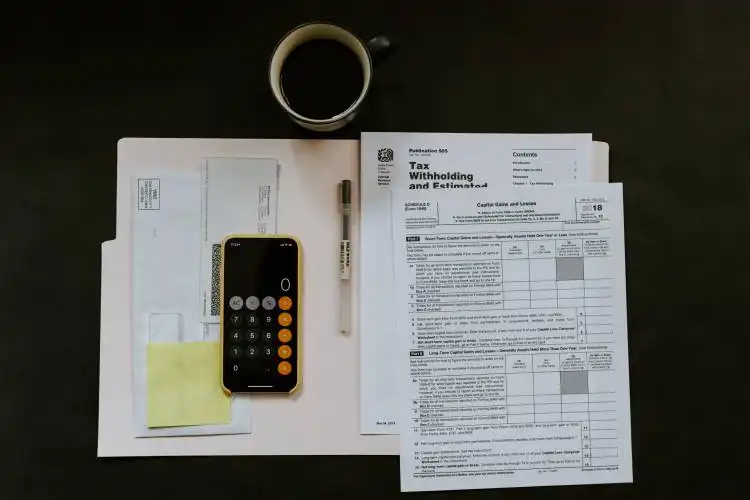Start a Debt Collection Agency
Unleashing Your Inner Financial Bounty Hunter
| Updated


DEBT COLLECTION AGENCY
Armed with a phone and a healthy level of determination, launching a debt collection agency can unravel into a profitable frontier. Essentially, this business navigates the sometimes murky waters of recovering owed money from individuals or businesses on behalf of a creditor. Beware, this venture isn't for the faint-hearted; it often involves chasing after overdue bills with a magnifying glass and a bloodhound's tenacity. Think of it as a financial rescue mission - returning stray money back to its rightful owner!
Jump to Business Plan
RELATED BUSINESS IDEAS
Browse ALL Finance & Accounting Business Ideas
Discover Your Perfect Domain
Unlock the door to your online success with our hand-picked selection of premium domain names. Whether you're starting a new venture or rebranding an existing one, the right domain can set the tone for your digital presence. Browse through our curated list, each with its unique potential to enhance your brand's visibility and credibility.
DEBT COLLECTION AGENCY MINI BUSINESS PLAN
This a quick reality check to help you identify the strengths and weaknesses of your business concept before you dive in.
Business Idea: Debt Collection Agency
Expected Percent Margin:
- Gross Margin: 35-55%
- Net Profit Margin: 15-25%
Earnings Expectation:
- Daily Earnings: $300 - $700
- Weekly Earnings: $1,500 - $3,500
- Monthly Earnings: $6,000 - $14,000
- Annual Earnings: $72,000 - $168,000
Actions to Hit Those Numbers:
Portfolio Acquisition:
- Initial Investment: Pooled financial resources of at least $50,000-$100,000 to purchase charged-off debt portfolios.
Marketing and Business Acquisition:
- Networking: Develop relationships with credit grantors, medical institutions, utility companies, etc.
- Online Presence: Designate a budget to build and maintain a professional website to establish credibility.
Operations and Compliance:
- Staffing: Employ dedicated, organized, and compliant staff.
- Compliance: Ensure regular training and auditing of FDCPA, TCPA, and state collection laws.
Recovery Action:
- Collection Strategy: Design multi-channel strategies and follow-ups.
- Debtor Risk Profiling: Ensure your agency is doing due diligence in profiling debtors for effective collection.
Cost Control:
- Rent: Opt for a modest space as fancy offices aren’t necessary.
- Software: Use effective software to manage debts, communication, and compliance.
Business Diversification:
- Consultancy: Provide consultancy and advice services to creditors.
- Training: Conduct training workshops for other businesses in debt management and recovery.
Remember, these are generalized estimations and can vary depending on location, scale of operation, economic conditions, and individual business strategies. Consult with a financial advisor for personalized advice.
NOT WHAT YOU HAD IN MIND? Here are more ideas



Browse ALL Finance & Accounting Business Ideas
Grab Your Business Website Name
Before you get caught up in the whirlwind of setting up your business, invest in a domain name. It's a small but significant step that lays the foundation for your brand and makes it easier for customers to find and trust you. Just like you wouldn't build a house without securing the land first, don't build a business without securing your domain name.
"Why? Can't that wait?" Here's why it shouldn't
Step 1: Determine if Starting a Debt Collection Agency is the Right Endeavor
Breakdown of Startup Expenses
Before starting a debt collection agency, it is important to understand the startup costs associated with the business. This includes the cost of registering the business with the state, obtaining any necessary licenses, and any other fees associated with getting the business up and running. Additionally, the cost of any necessary equipment and software should be taken into account. It is also important to factor in the cost of any necessary training and the cost of any marketing materials.
Breakdown of Ongoing Expenses
Once the business is up and running, there are ongoing expenses that must be taken into account. This includes the cost of any necessary staff, such as debt collectors, as well as the cost of any necessary software and equipment. Additionally, the cost of any necessary insurance and any other fees associated with running the business should be taken into account.
Examples of Ways to Make Money
There are a variety of ways to make money in the debt collection industry. This includes collecting fees from debtors, charging a percentage of the amount collected, and charging a flat fee for services rendered. Additionally, some agencies may offer services such as credit counseling or debt management plans, which can be a source of additional income. Finally, some agencies may offer additional services such as skip tracing or asset location services, which can also be a source of additional income.
Step 2: Name the Business
When naming a business, it is important to choose a name that is memorable, unique, and easy to pronounce. It should also be a name that reflects the purpose of the business. For example, a debt collection agency should have a name that reflects the services it provides. It should also be a name that is not already being used by another business. Additionally, it is important to make sure the name is not too long or too complicated. It should also be easy to spell and pronounce.
When choosing a name, it is also important to consider the domain name. It is best to choose a domain name that is the same as the business name. This will help customers find the business more easily. Additionally, it is important to check if the domain name is available. If it is not, then it is best to choose a different name.
Once the business name has been chosen, it is important to make sure the name is legally available. This can be done by checking with the local government to make sure the name is not already taken. Additionally, it is important to make sure the name does not infringe on any trademarks. This can be done by searching the United States Patent and Trademark Office database.
Finally, it is important to register the business name with the local government. This will ensure that the business name is legally protected and that the business is in compliance with all local laws and regulations. This will also make it easier for customers to find the business.
Step 3: Obtain Necessary Licenses and Permits
In order to legally operate a debt collection agency, you will need to obtain the necessary licenses and permits. Depending on the state in which you are operating, this could include a business license, a debt collection license, and a surety bond. Additionally, you may need to register with the state attorney general’s office and the local consumer protection agency. It is important to research the specific requirements for your state and local area, as these can vary. Additionally, you may need to obtain a tax identification number from the IRS.
Once you have obtained the necessary licenses and permits, you will need to make sure that you are in compliance with all applicable laws and regulations. This includes the Fair Debt Collection Practices Act, which regulates the activities of debt collectors. Additionally, you should familiarize yourself with the laws and regulations governing debt collection in your state. Finally, you should make sure that you are in compliance with any applicable industry standards.
Step 4: Establish a Business Plan
A business plan is a critical component of starting a debt collection agency. It should include a detailed description of the services the agency will offer, the target market, the competitive landscape, and the financial goals of the business. Additionally, the plan should include a detailed breakdown of the startup and ongoing costs associated with the business. This will help the business owner determine if the venture is financially feasible. The business plan should also include a marketing strategy to reach potential customers and a plan for managing customer accounts. Finally, the business plan should include a strategy for making money. This could include charging a fee for services, collecting a percentage of the debt collected, or offering additional services such as debt counseling or credit repair.
Step 5: Secure Financing
Securing financing for a debt collection agency is a critical step in the process. Before applying for a loan, it is important to understand the different types of financing available. Business owners should consider traditional loans, venture capital, and crowdfunding as potential sources of funding. Additionally, it is important to understand the terms of the loan and the repayment schedule. Business owners should also consider the potential tax implications of taking out a loan.
Once the type of loan and repayment schedule are determined, the business owner should begin the application process. This will involve submitting a business plan and financial statements to the lender. It is important to be prepared to answer questions about the business and its operations. Additionally, the business owner should be prepared to provide collateral to secure the loan.
After the loan is approved, the business owner should begin the process of securing the necessary licenses and permits. This will involve submitting an application to the appropriate state and local agencies. Additionally, the business owner should research any local regulations that may apply. Depending on the state, the business owner may also need to obtain a surety bond.
Finally, the business owner should begin the process of setting up a bank account for the business. This will involve submitting the necessary documents to the bank and providing proof of the business’s legal status. Additionally, the business owner should consider setting up a merchant account to accept credit card payments. This will allow the business to collect payments from customers more quickly.
Step 6: Hire Employees
Hiring the right employees is essential for any business, and a debt collection agency is no exception. It is important to hire people who are knowledgeable about the industry and have a strong understanding of the laws and regulations that govern debt collection. Additionally, it is important to hire people who are good communicators and have a strong sense of customer service. This will help ensure that customers are treated with respect and that their accounts are managed in a professional manner.
When hiring employees, it is important to conduct thorough background checks and to ensure that the employees are properly trained. This will help to ensure that the employees are knowledgeable about the industry and that they are following all applicable laws and regulations. Additionally, it is important to provide ongoing training to ensure that employees stay up to date on the latest industry trends and regulations.
In addition to hiring employees, it is important to create a clear job description for each position. This will help to ensure that employees understand their roles and responsibilities and that they are held accountable for their performance. Additionally, it is important to create a system of rewards and incentives to motivate employees and ensure that they are working hard to meet the company's goals.
Finally, it is important to create a positive work environment. This will help to ensure that employees are happy and that they are motivated to do their best work. Additionally, it is important to provide employees with the necessary resources and tools to do their jobs effectively. This will help to ensure that employees are productive and that they are able to provide the best service possible to customers.
Step 7: Set Up an Office
Setting up an office for a debt collection agency is an important step in the process. It is important to find a space that is suitable for the business and can accommodate the necessary equipment and personnel. The office should be located in a safe and secure area, preferably near other businesses that can provide referrals. It should also be easily accessible to clients and debtors.
When setting up the office, it is important to consider the necessary equipment and supplies. This includes computers, printers, scanners, phones, and other office supplies. It is also important to have a secure filing system for confidential documents. Additionally, it is important to consider the necessary furniture, such as desks, chairs, and filing cabinets.
When setting up the office, it is important to consider the necessary security measures. This includes installing a security system and cameras, as well as ensuring that the office is well-lit and secure. Additionally, it is important to consider the necessary insurance coverage for the business.
Finally, it is important to consider the necessary licenses and permits for the business. This includes obtaining a business license and any other necessary permits that may be required. Additionally, it is important to ensure that the business is compliant with all local, state, and federal laws.
Step 8: Market Your Business
Now that you’ve established your debt collection agency, it’s time to market it. You’ll want to create a website that outlines the services you offer, as well as any other information that potential clients might need. You can also create a blog to help you stay in touch with your clients and keep them informed of any changes or updates. Additionally, you should consider using social media to reach out to potential clients. You can create a Facebook page, Twitter account, or Instagram profile to help spread the word about your business. You can also use search engine optimization (SEO) techniques to help your website rank higher in search engine results. Finally, you can use traditional advertising methods such as print ads, radio ads, and television commercials to reach out to potential clients.
Step 9: Maintain Compliance
The final step in starting a debt collection agency is to maintain compliance. It is important to stay up to date with all the laws and regulations that govern debt collection. This includes federal and state laws, as well as industry-specific regulations. It is important to understand the Fair Debt Collection Practices Act, which outlines the rights of debtors and the responsibilities of debt collectors. It is also important to understand the Telephone Consumer Protection Act, which regulates how debt collectors can contact debtors. Additionally, debt collection agencies must be licensed in the states in which they operate. It is important to research the specific licensing requirements for each state. Finally, debt collection agencies must maintain records of all their activities, including communications with debtors, payments received, and any legal actions taken. This will help ensure that the agency is in compliance with all applicable laws and regulations.
EXPLORE MORE CATEGORIES
Browse ALL Business Idea Categories
TAKE THE NEXT STEPS










